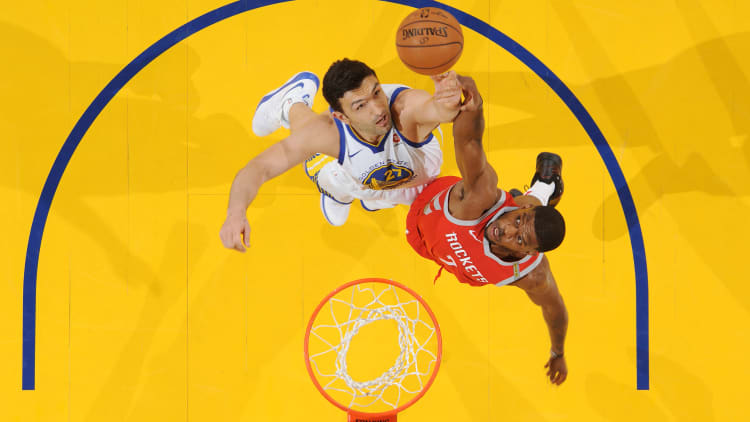SAN ANTONIO — Basketball Hall of Famer David Robinson, co-founder of Admiral Capital Group, is helping to raise $50 million for a new investment fund designed to help develop economically depressed neighborhoods in Texas.
The investor and retired Spurs superstar is raising funds for Blueprint Local, an opportunity zone investment platform that was created out of the federal 2017 Tax Cuts and Jobs Act. The law carved out tax breaks for investors who pour money into distressed communities — like in San Antonio and the downtrodden East side of Austin where Blueprint will direct its capital.
Robinson said he was drawn to the investment because it benefits the Alamo City, where he spent his entire professional basketball career.
"It's about community building," Robinson said. "It's tying philanthropy people together, tying the city people together and really building a density in certain communities that haven't had an investment."
His own fund, Admiral Capital, focuses on private equity and real estate deals that can "make a positive social impact," according to its website. The firm says it has invested more than $300 million in over 50 deals with total transaction value of over $1.5 billion.
The opportunity zone legislation was designed to direct investment to under-developed sections of cities to help increase a neighborhood's values without triggering a rise in rent that would drive local residents out of the rebuilt communities.
Investors get tax breaks on their capital gains if they leave their money in the community for at least 10 years. However, Robinson said a major incentive of the law is to roll over capital gains from another investment into the fund, wait the required time, and withdraw capital gains with no tax penalty.
"It's kind of a nice benefit where you can turn a decent investment into a very good investment," said Robinson, a Navy veteran whose nickname during his NBA career was The Admiral.
Investment firm Brown Advisory assists in operating Blueprint Local, which already has almost half of its $50 million target. Robinson, 54, said that's enough money to begin exploring investments in qualified zones.
The goal of Blueprint Local is to make investments that leave a lasting boost to the local economy long after investors cash in their gains. Robinson cited the dearth of quality grocery stores, or "food desert," that plagues many poor neighborhoods and forces residents to drive elsewhere to buy fresh groceries.
"Addressing the education challenge, the employment and opportunity challenge," said Robinson, adding that the fund is "very interesting for local investors" who want to give back to their communities and help develop under-invested areas.
"I'd say if you had capital gains and you want to transfer some of that money without paying the capital gains, it's an unbelievable investment," Robinson said. "And it's an opportunity to invest locally and build communities without taking that money out of the communities, whereas somebody who builds a Home Depot or a new hotel or something, that money might go right back to New York. What we're doing is where trying to keep a lot of that money in the communities."
Robinson was quick to add the opportunity to invest in Blueprint Local can be a "positive" not just for NBA players loaded with money but "Texans" in general.
Robinson is also investing in San Antonio by co-founding Carver Academy, a charter school system with 24 schools and a goal of opening 40 schools within the next "four years."
"The possibilities are exciting," he said. "The execution will be the challenge."



